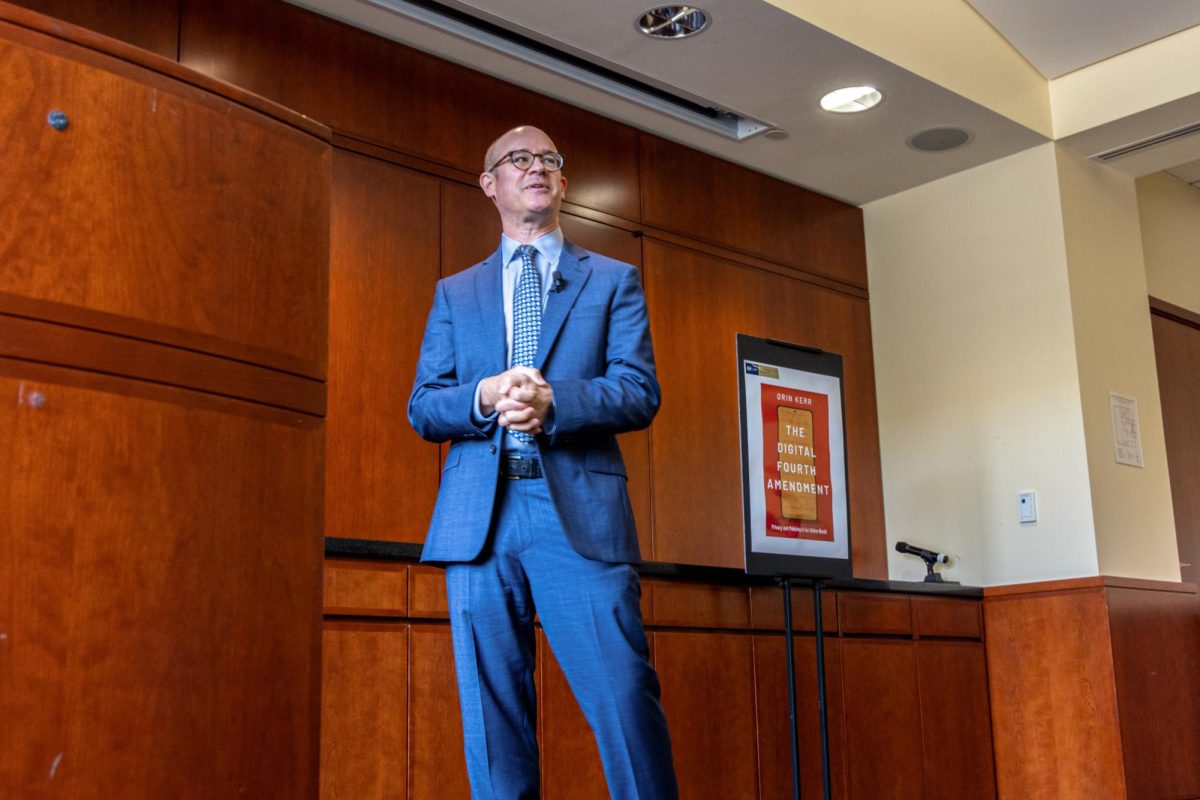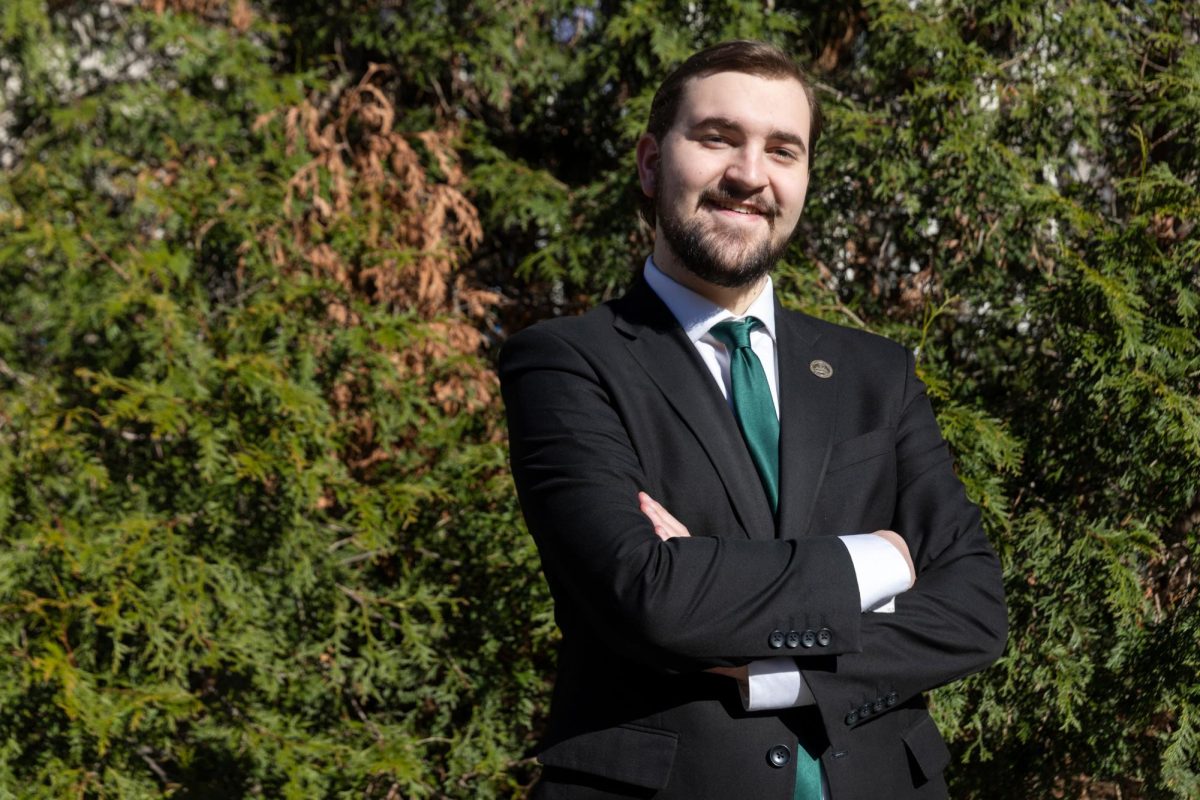Updated: Feb. 16, 2024, at 5:06 p.m.
The Student Government Association and Alumni Association hosted a panel on navigating multicultural identity on campus in the University Student Center on Wednesday.
More than 15 students gathered in the student center’s amphitheater to hear from seven student and alumni panelists about finding community in student organizations, coping with imposter syndrome and becoming empowered in one’s identity. The panel included student organization leaders and alumni working in journalism, advocacy and law.
Executive Secretary of Undergraduate Student Life Hairat Ira Issoufou said she planned the panel in collaboration with Executive Secretary of Alumni Relations Prabha Raghavan to give students of color the opportunity to hear from speakers who can relate to their experiences at GW.
“As executive secretary of undergraduate student life, I figured that this would be the perfect opportunity to create a space for students like myself who need to see other people who look like them and ask the hard-hitting questions that I’ve been dealing with,” Issoufou said.
Panelists said they found community in student organizations like the Philippine Cultural Society, the Black Law Student Association and the Lambda Theta Alpha Latin Sorority. They said joining these organizations alleviated the “culture shock” of attending a predominantly white institution like GW as a student of color.
Rubin Roy, a 2023 graduate and product manager for Salesforce, said he initially struggled to find a community as a first-year, navigating a predominantly white campus as a student of color. He said student organizations and programming through the Multicultural Student Services Center helped him find people who could empathize with his experience and created a welcoming space for him on campus.
“Those were really, really instrumental in finding a group of people that could empathize and that empathy didn’t need to take the form of a super long form conversation,” Roy said.
Roy said University officials including Associate Vice Provost for Diversity, Equity and Engagement Jordan Shelby West and MSSC Director Dustin Pickett — who announced his resignation from the role Wednesday — “go beyond their salary” in advocating for students at the MSSC and multicultural student organizations, but that they lack resources and staffing.
“Whether that’s budget, whether that’s space, whether that’s staffing, we’ve all seen in some way or another those things come up as far as our experiences as multicultural students,” Roy said.
Jade Balansag, a junior and the president of the Philippine Cultural Society, said she wants to see more resources for multicultural student organizations including an increased budget for events and operations.
She said officials don’t understand the impact of multicultural student organizations on campus, which aid students of color in navigating their college experience. Balansag said PCS aims to provide this space for students on campus, offering a place where they can laugh, dance and have fun with each other.
“I wish the people up there, the people in control of the resources and the money, I wish they would just take it down a little bit and come down here with us,” Balansag said.
Olajumoke Obayanju, a 2016 law school graduate and the director of the National Racial Equity Initiative for Social Justice at the Congressional Black Caucus Foundation, asked the audience if they had ever experienced imposter syndrome, or a difficulty in feeling one’s success is well-earned, as a student of color at GW, prompting many attendees to raise their hands. Obayanju said imposter syndrome can happen at any age or point in one’s life, as students of color often struggle to find a sense of belonging in predominantly white spaces.
“I developed impostor syndrome because of the ideal person that I thought deserved to be there,” Obayanju said.
Obayanju said the best way to overcome imposter syndrome is to constantly assure oneself that they deserve opportunities or success.
“It just hits you, right, that’s not my experience,” Obayanju said. “And so you have to constantly say, ‘But yet I’m here, but yet I’m here, but yet I’m here.’”
Claritza Jiménez, a 2005 graduate and the director of News Marketing Strategy at CBS News/Paramount, said it is crucial for people to own their identity and assert their identity to others. She said students of color are often prematurely judged based on stereotypes and they need to confidently present themselves to avoid bias.
“This always about taking your power back, especially as women, as women of color, Latina and Black. Because trust me, the rest of the world is very ready to tell us who we are, and they want to shut us up about it too,” Jiménez said.
GW Alumni Association President Maxwell Gocala-Nguyen, who moderated the panel, said he hopes students who attended the panel will understand the importance of building community at GW. He said students should not feel alone because there are many other students experiencing the same emotions.
“It’s about building community because even though we’re all trying to find our own individual success at GW, we are at GW and it is a huge community. So let’s be successful together,” said Gocala-Nguyen.
This post was been updated to correct the following:
The Hatchet incorrectly spelled Claritza Jiménez in a prior version of this post. We regret this error.










